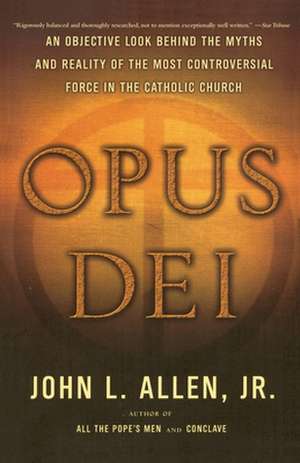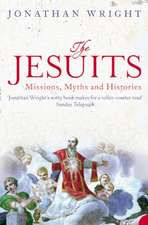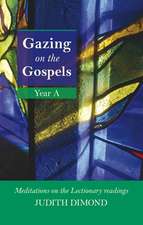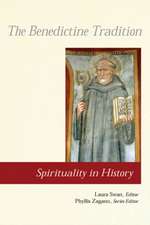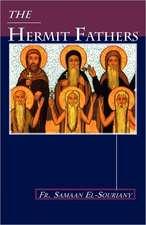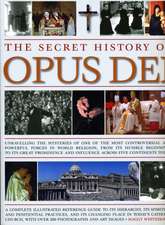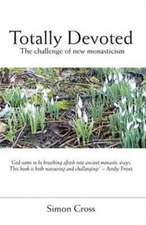Opus Dei: An Objective Look Behind the Myths and Reality of the Most Controversial Force in the Catholic Church
Autor John L. jr. Allenen Limba Engleză Paperback – 31 mai 2007
Opus Dei (literally “the work of God”) is an international association of Catholics often labeled as conservative who seek personal Christian perfection and strive to implement Christian ideals in their jobs and in society as a whole. Founded in Spain in 1928, it now has 84,000 members (1,600 of whom are priests) in eighty countries. But far from running bingo nights at local parishes, Opus Dei has become a center of controversy and suspicion both within and outside the Church. It has been accused of promoting a right-wing political agenda and of cultlike practices, aggressive recruiting, brainwashing new recruits, and isolating members from their families. Its notoriety escalated with the publication of the runaway bestseller The Da Vinci Code (Opus Dei plays an important and sinister role in the novel) and with the previous pope’s much-debated canonization of its founder (often linked with Francisco Franco’s facist regime) and the discovery that convicted FBI spy Robert Hanson was a member of Opus Dei.
With the expert eye of a longtime trusted observer of the Vatican and the skill of an investigative reporter intent on uncovering closely guarded secrets, John Allen finally separates the myths from the facts in Opus Dei. Granted unlimited access to the prelate who heads the organization and to Opus Dei centers throughout the world, Allen draws on a wealth of interviews with current members, as well as with highly critical ex-members, to create an unprecedented portrait of the activities, practices, and intentions behind its veil of secrecy. Allen reveals the remarkable power that Opus Dei commands in shaping Vatican policy and presents a detailed look at the full extent of its network, which includes people in key positions in politics, banking, academia, and other influential arenas. He even describes the arcane rituals—including self-flagellation—performed to preserve and promote a spiritual tradition strange and unsettling to modern sensibilities.
For years, Opus Dei has been the subject of conspiracy theories and dark, uninformed speculation. Opus Dei sets the record straight.
Preț: 139.05 lei
Nou
Puncte Express: 209
Preț estimativ în valută:
26.61€ • 27.49$ • 22.13£
26.61€ • 27.49$ • 22.13£
Carte disponibilă
Livrare economică 26 februarie-12 martie
Preluare comenzi: 021 569.72.76
Specificații
ISBN-13: 9780385514507
ISBN-10: 0385514506
Pagini: 403
Dimensiuni: 137 x 208 x 28 mm
Greutate: 0.5 kg
Editura: IMAGE
ISBN-10: 0385514506
Pagini: 403
Dimensiuni: 137 x 208 x 28 mm
Greutate: 0.5 kg
Editura: IMAGE
Notă biografică
JOHN L. ALLEN is the Vatican correspondent for the National Catholic Reporter and a Vatican analyst for CNN and National Public Radio. He is the author of The Rise of Benedict XVI and All the Pope’s Men: The Inside Story of How the Vatican Really Thinks. His work has appeared in the New York Times, the Boston Globe, the Miami Herald, The Nation, and many other publications. His Internet column, “The Word from Rome,” is considered by knowledgeable observers to be the best single source of insights on Vatican affairs in the English language.
Extras
Chapter One
A QUICK OVERVIEW OF OPUS DEI
The Tablet of London, a well-known English Catholic publication, recently published a series of jokes about various groups within the Catholic Church, and here's how the one on Opus Dei goes: How many members of Opus Dei does it take to screw in a lightbulb? The answer is, one hundred . . . one to screw in the bulb, and ninety-nine to chant, "We are not a movement, we are not a movement."
Though perhaps a bit catty, the joke makes a good point, which is that Opus Dei has sometimes been better at explaining what it is not rather than what it is. Escriva strongly insisted that Opus Dei is not a religious order, thus it is not comparable to the Franciscans or the Dominicans. Its members remain fully immersed in the world and do not retreat to monasteries or cloisters. They find God through the mundane details of daily secular life. In later years Opus Dei has fought similar battles to insist that it is not a "lay movement," because it includes clergy. This is precisely what gives Opus Dei its unique character: It is an institution of laypeople and priests together, men and women, sharing the same vocation but playing different roles. Over the years Opus Dei has been classified within Church structures in a variety of different ways: as a pious union, a priestly society of common life without vows, a secular institute, and finally, since 1982, as a "personal prelature." At each stage before the final one, Opus Dei's leading thinkers insisted that the existing structures within the 1917 Code of Canon Law, the official body of law for the Catholic Church prior to 1983, were inadequate to reflect the group's true nature. In effect, members argued, an entirely new concept, something like the personal prelature, had to be carved out in order to give Opus Dei the juridical configuration that corresponded to its original spiritual impulse and vision.
So what was that impulse?
Members of Opus Dei date the group's foundation to October 2, 1928, when Josemar’a Escriva, then a young Spanish priest making a retreat at a Vincentian monastery in Madrid, experienced a vision, revealing to him "whole and entire" God's wish for what would later become Opus Dei. Obviously the vision was not "entire" in the sense that it answered every question, since it required subsequent inspirations to demonstrate to Escriva that there should be a women's branch to Opus Dei (that came in 1930) and that Opus Dei should also include a body of priests, the Priestly Society of the Holy Cross (1943). Yet in some sense, Escriva insisted, the blueprint for Opus Dei was contained in that original experience on the Feast of the Guardian Angels in 1928. Here's how he once described it: "On October 2, 1928, the feast of the Holy Guardian Angels--by now nearly forty years have gone by--the Lord willed that Opus Dei might come to be, a mobilization of Christians disposed to sacrifice themselves with joy for others, to render divine all the ways of man on earth, sanctifying every upright work, every honest labor, every earthly occupation."
Escriva and the members of Opus Dei are thus convinced that their organization is rooted in God's will. As Escriva himself once put it, "I was not the founder of Opus Dei. Opus Dei was founded in spite of me." Originally Escriva did not even give this new reality a name; "Opus Dei," which is Latin for "work of God," came from an offhand comment from Escriva's confessor, who once asked him, "How's that Work of God going?" This is why members usually refer to Opus Dei as "the Work."
The core idea revealed to Escriva in that 1928 vision, and unfolded in subsequent stages of Opus Dei's development, was the sanctification of ordinary life by laypeople living the gospel and Church teaching in their fullness. This is why one of the leading symbols for Opus Dei is a simple cross within a circle--the symbolism betokens the sanctification of the world from within. The idea is that holiness, "being a saint," is not just the province of a few spiritual athletes, but is the universal destiny of every Christian. Holiness is not exclusively, or even principally, for priests and nuns. Further, holiness is not something to be achieved in the first place through prayer and spiritual discipline, but rather through the mundane details of everyday work. Holiness thus doesn't require a change in external circumstances, but a change in attitude, seeing everything anew in the light of one's supernatural destiny.
In that sense, admirers of Escriva, who included Pope John Paul II, believe the Spanish saint anticipated the "universal call to holiness" that would be announced by the Second Vatican Council. The late cardinal of Florence and right-hand man of Pope Paul VI, Giovanni Benelli--who crossed swords with Escriva over the years--nevertheless once said that what Saint Ignatius of Loyola, the founder of the Jesuits, was to the sixteenth-century Council of Trent, Escriva was to the Second Vatican Council. That is, he was the saint who translated the council into the life of the Church.
In a December 2004 interview, the number-two official of Opus Dei, Monsignor Fernando Ocariz, a Spanish theologian who has served since 1986 as a consultor to the Congregation for the Doctrine of the Faith, the Vatican's doctrinal agency, explained that Escriva's understanding of the "universal call to holiness" had two dimensions, subjective and objective. The subjective is the invitation to individual persons to sanctification, meaning that all people, regardless of their station in life, are called to become saints. The objective is the realization that all of creation, and every situation in human experience, is a means to this end.
"All human realities, all the circumstances of human life, all the professions, every family and social situation, are means of sanctification," Ocariz said. "It's not just that everyone is supposed to be a saint despite the fact of not being priests or monks, but precisely that all the realities of life are places that can lead one to the Lord."
Commenting on The Song of Songs from the Old Testament, Escriva once put this idea in lyrical form. "I will seek the one my soul loves in the streets and public squares," he wrote. "I will run from one part of the world to the other . . . seeking the peace of my soul. And I find it in the things that come from outside, which for me are not an obstacle; on the contrary, they are a path and a stairway to draw closer and closer, to unite myself more and more with God." That instinct to find God "in the things that come from outside," the normal hustle and bustle of the workaday world, is the Opus Dei impulse.
Escriva once described Opus Dei as "an intravenous injection in the bloodstream of society." Members would be doctors and lawyers and university professors and barbers and bus drivers, and from the outside they would appear to be exactly the same as everyone else. There's a famous story about the first three priests ordained for Opus Dei--Alvaro del Portillo, Jose Mar’a Hernandez de Garnica, and Jose Luis Mœzquiz--that illustrates this point. Escriva noticed that not one of them smoked, which was rather odd in Spain in 1944. He told them that one of them was going to have to take up smoking, lest people get the impression there was something unwordly about these Opus Dei guys. The choice fell on Portillo, who would eventually succeed Escriva. Opus Dei's lay members would not wear special religious habits, they would not be cloistered, and they would not claim to possess a special state of life. The idea was to redeem the world, not by retreating from it, but by "Christianizing it," carrying out all the tasks of daily living with a new spirit. Escriva's shorthand formula was, "Sanctify your work. Sanctify yourself in your work. Sanctify others through your work."
It's worth underlining the revolutionary character of this vision in Spain in the 1930s and 1940s. As Escriva described it, Opus Dei is not supposed to be a clergy-driven enterprise. Laypeople are supposed to share the same vocation with the clergy, in a situation of full equality. The clergy, in his understanding, are more akin to support staff, experts in the spiritual life who offer the sacraments and means of doctrinal and spiritual formation, but the real "action" is out in the world. Only a layperson can decide how a particular lawsuit, or surgery, or newspaper article, can be made an offering to God, carrying others toward sanctification. The idea was to form people and then "turn them loose," trusting them to exercise their freedom. This includes, in principle, a commitment to male/female equality. In Opus Dei, women receive the same doctrinal and theological formation as men, including those men will eventually be ordained priests. All this was a break from a traditional clericalist mentality, and Escriva was denounced in some circles in Spain as an anticlericalist, even a heretic. There was talk of reporting him to the Vatican.
Everything about Opus Dei, at least from the official point of view, exists to promote this aim: forming ordinary laymen and women in Christian doctrine and spirituality, so that they may sanctify the world from within, using their own judgment about the best means to do so in their particular profession or walk of life. Officially speaking, Opus Dei is unlike virtually any other organization with which most people come into contact. It is not a lobby or an interest group, has no collective financial or political interests, and has no agenda. Escriva called it "a disorganized organization," in the sense that the home office does not issue memos at 8:00 a.m. with marching orders for the day. Opus Dei is responsible for formation, and its members do the rest. "Opus Dei does not act, its members do" is a frequent mantra.
Critics, it should be noted, generally insist that this is a smoke screen, that the "real" aims of the organization--the acquisition of political power, or financial gain, or new recruits--are hidden. For now, however, it's worth stepping through the way Opus Dei organizes its life and describes itself, in part so we can compare that with the criticisms later on.
Becoming a Member
As Opus Dei has become more prominent, it sometimes happens that a person walks in off the street and announces, "I want to be a member of Opus Dei." In such cases, these people are advised to learn a little something about Opus Dei first. Generally, however, it doesn't work this way. Membership usually arises out of getting to know Opus Dei, either through family who are members, or by exposure to one of Opus Dei's "corporate works" such as a school or youth center, or through some other activity that may be run by members even though it's not formally sponsored by Opus Dei, such as a TV news agency or a clinic--anyplace it's possible to form a personal friendship. However it happens, a prospective member usually has been attending evenings of recollection, retreats, and other Opus Dei events well ahead of the decision to "whistle," the insider's lingo for the moment of joining. It is treated as a very serious choice, because belonging to Opus Dei is not seen as being a pastime or a hobby. It is a vocation, thus akin in life-changing significance to the decision to get married or to enter the priesthood.
What's the draw? At a supernatural level, the answer is always that God has given someone a vocation to Opus Dei. At the human level, however, various factors can be the points of initial attraction. For some, it may be reading the works of Escriva; in that department, most members say the first thing to catch their attention was the idea that study or work could be their path to holiness. For others, it may be that Opus Dei offers an environment in which a serious, prayerful Catholic can feel supported. For many, it's the example set by the numeraries, who often come across as smart, dedicated, devout, and happy people, living coherent lives based on their faith. In other words, they "walk the walk." Opus Dei centers can also be a lot of fun. When I visited the Windmoor Center at Notre Dame in September 2004, for example, I arrived for their weekly Friday night fried chicken dinner, which was preceded by a meditation and followed by beers and chat. The atmosphere can be infectious, combining prayer and Catholic orthodoxy with a lighthearted, collegial, and intellectually stimulating group of people.
Since Opus Dei is not a religious order, members do not take "vows," nor does their status under Church law change when they join. Laypeople remain laity. Instead, they affliate themselves by means of that quintessential secular instrument, a contract. Essentially, members strike a deal with Opus Dei: They agree to live in the spirit of Opus Dei and to support its apostolic activities, and in return Opus Dei agrees to provide doctrinal and spiritual formation.
The formula of the contract is as follows:
Member
I, in the full use of my freedom, declare that with firm resolve I dedicate myself to pursue sanctity and to practice apostolate with all my energy according to the spirit and praxis of Opus Dei. From this moment until next March 19th, I assume the obligation:
First, to remain under the jurisdiction of the Prelate and the other competent authorities of the Prelature, in order to dedicate myself faithfully to everything that has to do with the special purposes of the Prelature;
Second, to fulfill all the duties of a Numerary/Associate/Supernumerary member of Opus Dei, and to observe the norms by which the Prelature is governed, as well as the legitimate rulings of the Prelate and the other competent authorities of the Prelature regarding its government, spirit and apostolate.
Representative of the Prelate
I, representing the Prelate, declare that from the moment of your incorporation into the Prelature, and for as long as that incorporation continues in force, Opus Dei assumes the obligation:
First, to devote constant care and attention to your doctrinal, spiritual, ascetical and apostolic formation, and to provide you with the special pastoral attention of the priests of the Prelature;
Second, to fulfill its other obligations with respect to its faithful, as determined in the norms by which the Prelature is governed.
Members remain free outside the terms of this contract, as does Opus Dei. At least in theory, members have no right to "represent" Opus Dei in their professional work, or to act on its behalf, and Opus Dei does not seek to influence them beyond their spiritual growth. To take a concrete example, Luis Valls, a seventy-eight-year-old Spanish member of Opus Dei, recently stepped down as executive chairman of Banco Popular, Spain's third-largest commercial bank with $47.9 billion in assets. Valls, who lives in an Opus Dei center in Madrid, has always insisted that nobody in Opus Dei dictated banking strategy to him, and that at no time were any resources from the bank diverted for Opus Dei purposes. He was not an "Opus Dei banker," but a banker who happened to be in Opus Dei. The impact of Opus on his business career and on his life, he insists, has been of a different order: "Without religious convictions, I would have been a rascal."
From the Hardcover edition.
A QUICK OVERVIEW OF OPUS DEI
The Tablet of London, a well-known English Catholic publication, recently published a series of jokes about various groups within the Catholic Church, and here's how the one on Opus Dei goes: How many members of Opus Dei does it take to screw in a lightbulb? The answer is, one hundred . . . one to screw in the bulb, and ninety-nine to chant, "We are not a movement, we are not a movement."
Though perhaps a bit catty, the joke makes a good point, which is that Opus Dei has sometimes been better at explaining what it is not rather than what it is. Escriva strongly insisted that Opus Dei is not a religious order, thus it is not comparable to the Franciscans or the Dominicans. Its members remain fully immersed in the world and do not retreat to monasteries or cloisters. They find God through the mundane details of daily secular life. In later years Opus Dei has fought similar battles to insist that it is not a "lay movement," because it includes clergy. This is precisely what gives Opus Dei its unique character: It is an institution of laypeople and priests together, men and women, sharing the same vocation but playing different roles. Over the years Opus Dei has been classified within Church structures in a variety of different ways: as a pious union, a priestly society of common life without vows, a secular institute, and finally, since 1982, as a "personal prelature." At each stage before the final one, Opus Dei's leading thinkers insisted that the existing structures within the 1917 Code of Canon Law, the official body of law for the Catholic Church prior to 1983, were inadequate to reflect the group's true nature. In effect, members argued, an entirely new concept, something like the personal prelature, had to be carved out in order to give Opus Dei the juridical configuration that corresponded to its original spiritual impulse and vision.
So what was that impulse?
Members of Opus Dei date the group's foundation to October 2, 1928, when Josemar’a Escriva, then a young Spanish priest making a retreat at a Vincentian monastery in Madrid, experienced a vision, revealing to him "whole and entire" God's wish for what would later become Opus Dei. Obviously the vision was not "entire" in the sense that it answered every question, since it required subsequent inspirations to demonstrate to Escriva that there should be a women's branch to Opus Dei (that came in 1930) and that Opus Dei should also include a body of priests, the Priestly Society of the Holy Cross (1943). Yet in some sense, Escriva insisted, the blueprint for Opus Dei was contained in that original experience on the Feast of the Guardian Angels in 1928. Here's how he once described it: "On October 2, 1928, the feast of the Holy Guardian Angels--by now nearly forty years have gone by--the Lord willed that Opus Dei might come to be, a mobilization of Christians disposed to sacrifice themselves with joy for others, to render divine all the ways of man on earth, sanctifying every upright work, every honest labor, every earthly occupation."
Escriva and the members of Opus Dei are thus convinced that their organization is rooted in God's will. As Escriva himself once put it, "I was not the founder of Opus Dei. Opus Dei was founded in spite of me." Originally Escriva did not even give this new reality a name; "Opus Dei," which is Latin for "work of God," came from an offhand comment from Escriva's confessor, who once asked him, "How's that Work of God going?" This is why members usually refer to Opus Dei as "the Work."
The core idea revealed to Escriva in that 1928 vision, and unfolded in subsequent stages of Opus Dei's development, was the sanctification of ordinary life by laypeople living the gospel and Church teaching in their fullness. This is why one of the leading symbols for Opus Dei is a simple cross within a circle--the symbolism betokens the sanctification of the world from within. The idea is that holiness, "being a saint," is not just the province of a few spiritual athletes, but is the universal destiny of every Christian. Holiness is not exclusively, or even principally, for priests and nuns. Further, holiness is not something to be achieved in the first place through prayer and spiritual discipline, but rather through the mundane details of everyday work. Holiness thus doesn't require a change in external circumstances, but a change in attitude, seeing everything anew in the light of one's supernatural destiny.
In that sense, admirers of Escriva, who included Pope John Paul II, believe the Spanish saint anticipated the "universal call to holiness" that would be announced by the Second Vatican Council. The late cardinal of Florence and right-hand man of Pope Paul VI, Giovanni Benelli--who crossed swords with Escriva over the years--nevertheless once said that what Saint Ignatius of Loyola, the founder of the Jesuits, was to the sixteenth-century Council of Trent, Escriva was to the Second Vatican Council. That is, he was the saint who translated the council into the life of the Church.
In a December 2004 interview, the number-two official of Opus Dei, Monsignor Fernando Ocariz, a Spanish theologian who has served since 1986 as a consultor to the Congregation for the Doctrine of the Faith, the Vatican's doctrinal agency, explained that Escriva's understanding of the "universal call to holiness" had two dimensions, subjective and objective. The subjective is the invitation to individual persons to sanctification, meaning that all people, regardless of their station in life, are called to become saints. The objective is the realization that all of creation, and every situation in human experience, is a means to this end.
"All human realities, all the circumstances of human life, all the professions, every family and social situation, are means of sanctification," Ocariz said. "It's not just that everyone is supposed to be a saint despite the fact of not being priests or monks, but precisely that all the realities of life are places that can lead one to the Lord."
Commenting on The Song of Songs from the Old Testament, Escriva once put this idea in lyrical form. "I will seek the one my soul loves in the streets and public squares," he wrote. "I will run from one part of the world to the other . . . seeking the peace of my soul. And I find it in the things that come from outside, which for me are not an obstacle; on the contrary, they are a path and a stairway to draw closer and closer, to unite myself more and more with God." That instinct to find God "in the things that come from outside," the normal hustle and bustle of the workaday world, is the Opus Dei impulse.
Escriva once described Opus Dei as "an intravenous injection in the bloodstream of society." Members would be doctors and lawyers and university professors and barbers and bus drivers, and from the outside they would appear to be exactly the same as everyone else. There's a famous story about the first three priests ordained for Opus Dei--Alvaro del Portillo, Jose Mar’a Hernandez de Garnica, and Jose Luis Mœzquiz--that illustrates this point. Escriva noticed that not one of them smoked, which was rather odd in Spain in 1944. He told them that one of them was going to have to take up smoking, lest people get the impression there was something unwordly about these Opus Dei guys. The choice fell on Portillo, who would eventually succeed Escriva. Opus Dei's lay members would not wear special religious habits, they would not be cloistered, and they would not claim to possess a special state of life. The idea was to redeem the world, not by retreating from it, but by "Christianizing it," carrying out all the tasks of daily living with a new spirit. Escriva's shorthand formula was, "Sanctify your work. Sanctify yourself in your work. Sanctify others through your work."
It's worth underlining the revolutionary character of this vision in Spain in the 1930s and 1940s. As Escriva described it, Opus Dei is not supposed to be a clergy-driven enterprise. Laypeople are supposed to share the same vocation with the clergy, in a situation of full equality. The clergy, in his understanding, are more akin to support staff, experts in the spiritual life who offer the sacraments and means of doctrinal and spiritual formation, but the real "action" is out in the world. Only a layperson can decide how a particular lawsuit, or surgery, or newspaper article, can be made an offering to God, carrying others toward sanctification. The idea was to form people and then "turn them loose," trusting them to exercise their freedom. This includes, in principle, a commitment to male/female equality. In Opus Dei, women receive the same doctrinal and theological formation as men, including those men will eventually be ordained priests. All this was a break from a traditional clericalist mentality, and Escriva was denounced in some circles in Spain as an anticlericalist, even a heretic. There was talk of reporting him to the Vatican.
Everything about Opus Dei, at least from the official point of view, exists to promote this aim: forming ordinary laymen and women in Christian doctrine and spirituality, so that they may sanctify the world from within, using their own judgment about the best means to do so in their particular profession or walk of life. Officially speaking, Opus Dei is unlike virtually any other organization with which most people come into contact. It is not a lobby or an interest group, has no collective financial or political interests, and has no agenda. Escriva called it "a disorganized organization," in the sense that the home office does not issue memos at 8:00 a.m. with marching orders for the day. Opus Dei is responsible for formation, and its members do the rest. "Opus Dei does not act, its members do" is a frequent mantra.
Critics, it should be noted, generally insist that this is a smoke screen, that the "real" aims of the organization--the acquisition of political power, or financial gain, or new recruits--are hidden. For now, however, it's worth stepping through the way Opus Dei organizes its life and describes itself, in part so we can compare that with the criticisms later on.
Becoming a Member
As Opus Dei has become more prominent, it sometimes happens that a person walks in off the street and announces, "I want to be a member of Opus Dei." In such cases, these people are advised to learn a little something about Opus Dei first. Generally, however, it doesn't work this way. Membership usually arises out of getting to know Opus Dei, either through family who are members, or by exposure to one of Opus Dei's "corporate works" such as a school or youth center, or through some other activity that may be run by members even though it's not formally sponsored by Opus Dei, such as a TV news agency or a clinic--anyplace it's possible to form a personal friendship. However it happens, a prospective member usually has been attending evenings of recollection, retreats, and other Opus Dei events well ahead of the decision to "whistle," the insider's lingo for the moment of joining. It is treated as a very serious choice, because belonging to Opus Dei is not seen as being a pastime or a hobby. It is a vocation, thus akin in life-changing significance to the decision to get married or to enter the priesthood.
What's the draw? At a supernatural level, the answer is always that God has given someone a vocation to Opus Dei. At the human level, however, various factors can be the points of initial attraction. For some, it may be reading the works of Escriva; in that department, most members say the first thing to catch their attention was the idea that study or work could be their path to holiness. For others, it may be that Opus Dei offers an environment in which a serious, prayerful Catholic can feel supported. For many, it's the example set by the numeraries, who often come across as smart, dedicated, devout, and happy people, living coherent lives based on their faith. In other words, they "walk the walk." Opus Dei centers can also be a lot of fun. When I visited the Windmoor Center at Notre Dame in September 2004, for example, I arrived for their weekly Friday night fried chicken dinner, which was preceded by a meditation and followed by beers and chat. The atmosphere can be infectious, combining prayer and Catholic orthodoxy with a lighthearted, collegial, and intellectually stimulating group of people.
Since Opus Dei is not a religious order, members do not take "vows," nor does their status under Church law change when they join. Laypeople remain laity. Instead, they affliate themselves by means of that quintessential secular instrument, a contract. Essentially, members strike a deal with Opus Dei: They agree to live in the spirit of Opus Dei and to support its apostolic activities, and in return Opus Dei agrees to provide doctrinal and spiritual formation.
The formula of the contract is as follows:
Member
I, in the full use of my freedom, declare that with firm resolve I dedicate myself to pursue sanctity and to practice apostolate with all my energy according to the spirit and praxis of Opus Dei. From this moment until next March 19th, I assume the obligation:
First, to remain under the jurisdiction of the Prelate and the other competent authorities of the Prelature, in order to dedicate myself faithfully to everything that has to do with the special purposes of the Prelature;
Second, to fulfill all the duties of a Numerary/Associate/Supernumerary member of Opus Dei, and to observe the norms by which the Prelature is governed, as well as the legitimate rulings of the Prelate and the other competent authorities of the Prelature regarding its government, spirit and apostolate.
Representative of the Prelate
I, representing the Prelate, declare that from the moment of your incorporation into the Prelature, and for as long as that incorporation continues in force, Opus Dei assumes the obligation:
First, to devote constant care and attention to your doctrinal, spiritual, ascetical and apostolic formation, and to provide you with the special pastoral attention of the priests of the Prelature;
Second, to fulfill its other obligations with respect to its faithful, as determined in the norms by which the Prelature is governed.
Members remain free outside the terms of this contract, as does Opus Dei. At least in theory, members have no right to "represent" Opus Dei in their professional work, or to act on its behalf, and Opus Dei does not seek to influence them beyond their spiritual growth. To take a concrete example, Luis Valls, a seventy-eight-year-old Spanish member of Opus Dei, recently stepped down as executive chairman of Banco Popular, Spain's third-largest commercial bank with $47.9 billion in assets. Valls, who lives in an Opus Dei center in Madrid, has always insisted that nobody in Opus Dei dictated banking strategy to him, and that at no time were any resources from the bank diverted for Opus Dei purposes. He was not an "Opus Dei banker," but a banker who happened to be in Opus Dei. The impact of Opus on his business career and on his life, he insists, has been of a different order: "Without religious convictions, I would have been a rascal."
From the Hardcover edition.
Recenzii
Praise for John Allen
The Rise of Benedict XVI
“(An) incisive look at the leader of the world’s 1.1 billion Catholics, written with the clarity and precision of a seasoned journalist.” —The Salt Lake Tribune
“A rich and thoughtful analysis of the present-day Catholic Church and its complex spiritual leader.” —Publishers Weekly
“This book is most definitely worth reading . . . Required reading for anyone who wants to understand the meaning of the extraordinary sequence of events that unfolded in Rome.” —The Tablet
All the Pope’s Men
“[A] superb book” —Chicago Sun-Times
“The National Catholic Reporter’s Vatican correspondent John L. Allen, Jr., unpacks several popular myths as well as the psychology, sociology, and theology that inform the Holy See’s worldview. But All the Pope’s Men is not a polemic. It’s a patient look at Vatican ways of thinking and acting.” —San Antonio Express-News
“An exceedingly valuable book.” —Fr. Richard John Neuhaus, First Things
Conclave
“An invaluable primer . . . highly informative.”—Washington Post
“Definitely a winner.”—Minneapolis Star Tribune
“It’s surprising how much you learn from this book . . . [Allen] explain[s] the process in an engaging way, and offers history, context and his own list of front-runners.” —Arizona Republic
The Rise of Benedict XVI
“(An) incisive look at the leader of the world’s 1.1 billion Catholics, written with the clarity and precision of a seasoned journalist.” —The Salt Lake Tribune
“A rich and thoughtful analysis of the present-day Catholic Church and its complex spiritual leader.” —Publishers Weekly
“This book is most definitely worth reading . . . Required reading for anyone who wants to understand the meaning of the extraordinary sequence of events that unfolded in Rome.” —The Tablet
All the Pope’s Men
“[A] superb book” —Chicago Sun-Times
“The National Catholic Reporter’s Vatican correspondent John L. Allen, Jr., unpacks several popular myths as well as the psychology, sociology, and theology that inform the Holy See’s worldview. But All the Pope’s Men is not a polemic. It’s a patient look at Vatican ways of thinking and acting.” —San Antonio Express-News
“An exceedingly valuable book.” —Fr. Richard John Neuhaus, First Things
Conclave
“An invaluable primer . . . highly informative.”—Washington Post
“Definitely a winner.”—Minneapolis Star Tribune
“It’s surprising how much you learn from this book . . . [Allen] explain[s] the process in an engaging way, and offers history, context and his own list of front-runners.” —Arizona Republic
Descriere
In the first serious, objective investigation of the highly secretive, controversial Opus Dei organization, Allen finally separates the myths from the facts surrounding the group and its ties to the Vatican.
